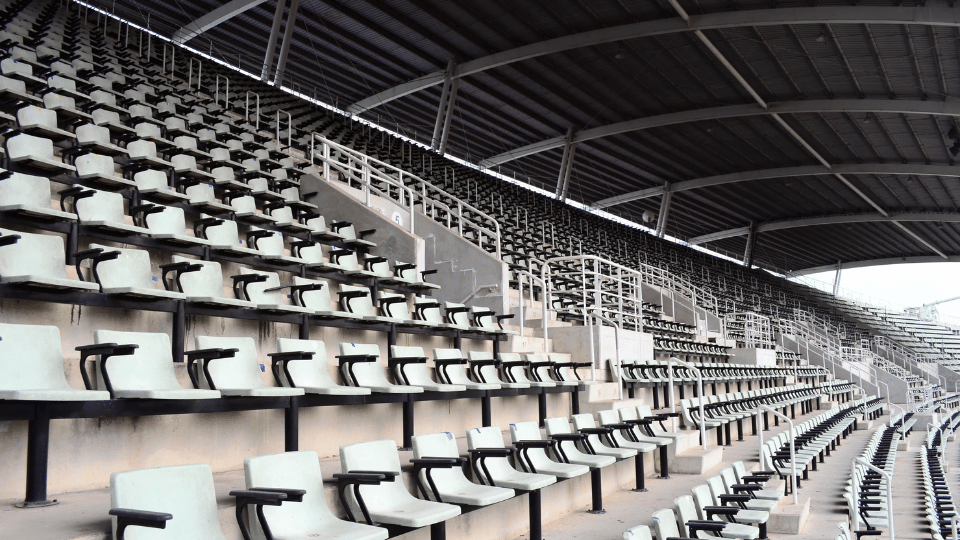Exploring the Synergy Between Sports Venues and Communities
Sports venues are more than just physical spaces where sports events take place. They are dynamic hubs that bring together communities, foster a sense of belonging, and contribute to the local economy. The relationship between sports venues and communities is intricate and multifaceted, with each influencing the other in various ways. In this article, we will delve into the dynamics of sports venues and communities, examining how they interact, support each other, and create a thriving ecosystem.
Economic Impact:
Sports venues have a significant economic impact on the communities they are located in. When events are held, they attract visitors from near and far, resulting in increased tourism and spending. Local businesses such as hotels, restaurants, and retail stores benefit from the influx of visitors, leading to job creation and revenue generation. Additionally, sports venues often serve as catalysts for urban development, prompting infrastructure improvements and attracting further investment.
Social Cohesion:
Sports venues play a crucial role in fostering social cohesion within communities. They provide a shared space where individuals from different backgrounds can come together to support their favorite teams and athletes. This shared experience creates a sense of unity and belonging, strengthening community bonds. Sports events also serve as platforms for social interactions, allowing people to connect and build relationships with like-minded individuals.
Health and Well-being:
The presence of sports venues in communities promotes physical activity and a healthier lifestyle. Sports facilities offer opportunities for individuals of all ages to engage in sports and recreational activities, contributing to improved fitness levels and overall well-being. These venues often host community programs, such as youth sports leagues and fitness classes, that encourage participation and provide access to athletic resources. The availability of such facilities can positively impact public health outcomes and reduce healthcare costs.
Cultural Identity:
Sports venues are often emblematic of a community’s cultural identity. They become symbols of pride and serve as gathering places for celebrations and shared experiences. The design and architecture of sports venues can also reflect the local culture and heritage, creating a unique sense of place. For example, the Sydney Opera House in Australia and the Maracanã Stadium in Brazil are iconic structures that have become synonymous with their respective cities.
Volunteer and Job Opportunities:
Sports venues offer a wide range of volunteer and job opportunities, contributing to the local economy and providing valuable experiences for community members. From event management and operations to hospitality and security, these venues require a diverse workforce to ensure smooth operations. Volunteering at sports events can also provide individuals with valuable skills and networking opportunities, enhancing their career prospects in the sports industry.
Community Development:
Sports venues can serve as catalysts for community development, particularly in underserved areas. The construction or renovation of a sports facility can revitalize neighborhoods, create new recreational spaces, and provide opportunities for youth engagement. Community-driven initiatives, such as sports programs and outreach efforts, can leverage the venue to address social issues, promote inclusivity, and empower individuals within the community.
Environmental Considerations:
As the world becomes increasingly conscious of environmental sustainability, sports venues are adapting to minimize their ecological footprint. Many modern venues incorporate sustainable design elements, such as energy-efficient lighting, water conservation measures, and waste management systems. Additionally, sports venues can be used as platforms to raise awareness about environmental issues and promote eco-friendly practices among spectators and participants.
In conclusion, the dynamics between sports venues and communities are intricate and mutually beneficial. These venues have the power to stimulate economic growth, foster social cohesion, promote health and well-being, preserve cultural identity, create job opportunities, drive community development, and encourage environmental sustainability. As we continue to build and evolve our sports venues, it is essential to recognize their potential to positively impact communities and strive for a harmonious relationship between sports and society.
Key Takeaways:
- Sports venues have a significant economic impact on communities, attracting visitors and boosting local businesses.
- Sports venues foster social cohesion by providing a shared space for diverse individuals to come together.
- The presence of sports venues promotes physical activity and improves overall health and well-being.
- Sports venues often reflect and contribute to a community’s cultural identity.
- Volunteering and job opportunities abound in sports venues, offering valuable experiences and career prospects.
- Sports venues can drive community development and address social issues, particularly in underserved areas.
- Environmental considerations are increasingly important, with sports venues adopting sustainable practices.
To further explore the exciting world of sports management, consider taking the NYU Fundamentals of Global Sports Management online course and certificate program offered by Yellowbrick. This comprehensive program will provide you with the knowledge and skills necessary to thrive in the sports industry. Don’t miss out on this opportunity to kickstart your career in sports management.




